
The Enchanting Cascade Mountains of Oregon
The Cascade Mountains in Oregon are a haven for nature lovers and adventure seekers alike. Stretching from northern California to British Columbia, the range offers a diverse landscape with lush forests, rugged peaks, and serene lakes. Oregon's section of the Cascades is particularly captivating, boasting some of the state's highest peaks, including the famous Mount Hood. Visitors can explore numerous hiking trails that wind through the mountains, offering stunning views of waterfalls, wildflower meadows, and volcanic formations. For those who enjoy winter sports, the Cascades provide excellent opportunities for skiing, snowboarding, and snowshoeing. Mount Bachelor is a popular destination for its extensive ski slopes and beautiful scenery. The Cascade Mountains are also home to a variety of wildlife, including deer, elk, and black bears. Bird watchers will be delighted by the presence of eagles, hawks, and other bird species. The region's natural beauty is complemented by charming small towns and historic sites, making it an ideal destination for both relaxation and adventure.
Local tips in Cascade Mountains
- Weather can be unpredictable; pack layers and waterproof gear.
- Visit in late spring or early summer to see wildflowers in full bloom.
- Check trail conditions before hiking, especially in winter.
- Mount Hood offers year-round skiing; don't miss it even in summer.
- Consider staying in a local lodge for an authentic experience.
- Bring binoculars for bird watching and wildlife spotting.
The Enchanting Cascade Mountains of Oregon
The Cascade Mountains in Oregon are a haven for nature lovers and adventure seekers alike. Stretching from northern California to British Columbia, the range offers a diverse landscape with lush forests, rugged peaks, and serene lakes. Oregon's section of the Cascades is particularly captivating, boasting some of the state's highest peaks, including the famous Mount Hood. Visitors can explore numerous hiking trails that wind through the mountains, offering stunning views of waterfalls, wildflower meadows, and volcanic formations. For those who enjoy winter sports, the Cascades provide excellent opportunities for skiing, snowboarding, and snowshoeing. Mount Bachelor is a popular destination for its extensive ski slopes and beautiful scenery. The Cascade Mountains are also home to a variety of wildlife, including deer, elk, and black bears. Bird watchers will be delighted by the presence of eagles, hawks, and other bird species. The region's natural beauty is complemented by charming small towns and historic sites, making it an ideal destination for both relaxation and adventure.
When is the best time to go to Cascade Mountains?
Iconic landmarks you can’t miss
Crater Lake National Park
Explore the breathtaking beauty of Crater Lake National Park, where deep blue waters and stunning landscapes await every adventurer.
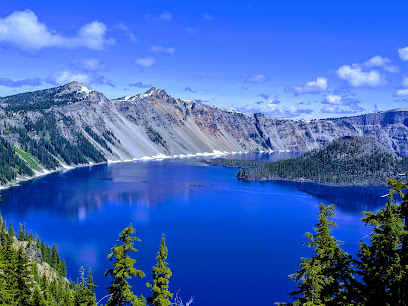
Columbia River Gorge National Scenic Area
Discover the breathtaking Columbia River Gorge National Scenic Area in Oregon, a stunning destination for hiking, waterfalls, and natural beauty.

Smith Rock State Park
Experience the breathtaking landscapes and adventure-filled trails of Smith Rock State Park in Oregon, a must-visit destination for nature lovers and outdoor enthusiasts.
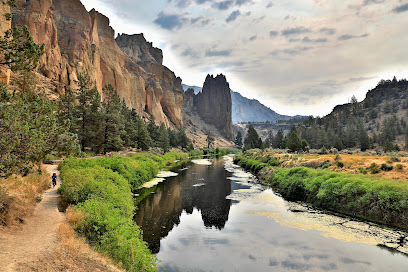
Beacon Rock State Park
Explore Beacon Rock State Park, a stunning natural wonder in Washington, with breathtaking views, diverse wildlife, and unforgettable outdoor adventures.
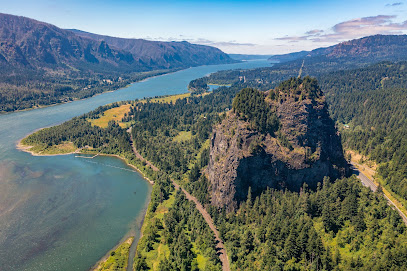
Cascade Locks Marine Park
Explore the stunning Cascade Locks Marine Park, a perfect blend of nature, adventure, and rich history in the heart of the Columbia River Gorge.
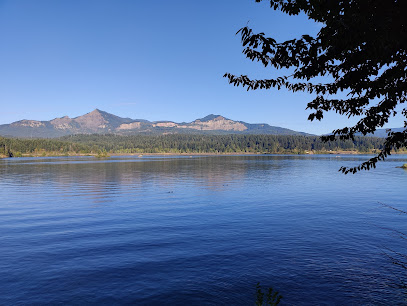
Bridge of the Gods
Explore the iconic Bridge of the Gods in Cascade Locks, Oregon, a stunning bridge offering breathtaking views and rich cultural heritage.
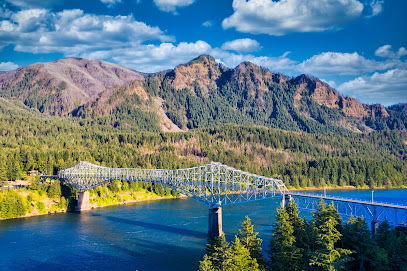
Lava Lands Visitor Center
Explore the stunning geology and breathtaking landscapes at Lava Lands Visitor Center in Bend, Oregon, your gateway to the Cascade Mountains.
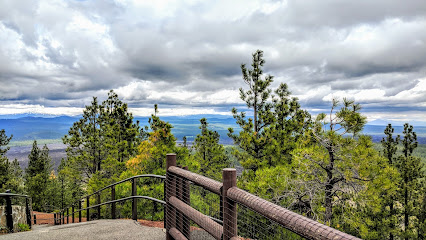
Viento State Park
Discover Viento State Park, a stunning Oregon destination offering breathtaking views, diverse wildlife, and endless outdoor adventures in the Columbia River Gorge.
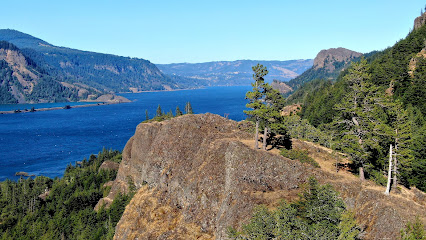
Ainsworth State Park
Experience the scenic wonders of Ainsworth State Park, a natural haven in the Columbia River Gorge, ideal for hiking, picnicking, and wildlife viewing.

Starvation Creek Falls
Experience the breathtaking beauty of Starvation Creek Falls, a stunning waterfall in Oregon's picturesque Columbia River Gorge.
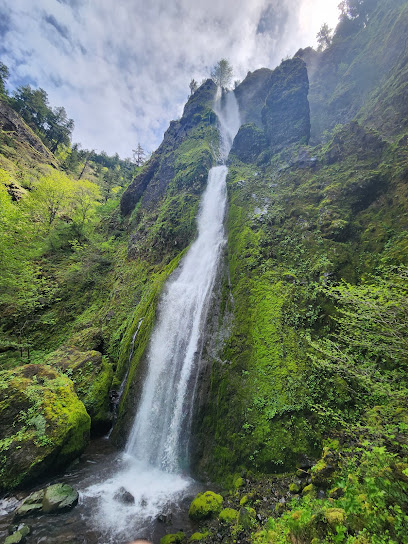
Wahclella Falls Trail
Explore the breathtaking Wahclella Falls Trail in the Columbia River Gorge, where stunning waterfalls and lush forests await your discovery.
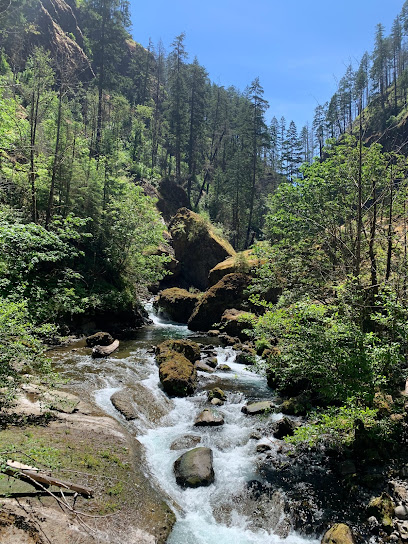
Lower Multnomah Falls
Experience the breathtaking beauty of Lower Multnomah Falls, a must-visit scenic spot in the stunning Columbia River Gorge, Oregon.
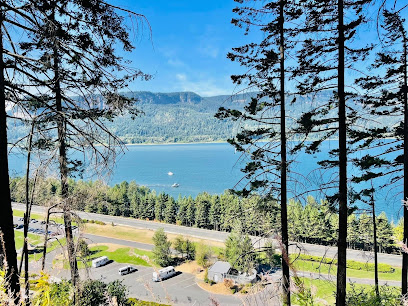
Dry Creek Falls
Experience the breathtaking beauty of Dry Creek Falls, a serene waterfall nestled in the heart of Oregon's Cascade Locks, perfect for nature lovers and adventurers alike.
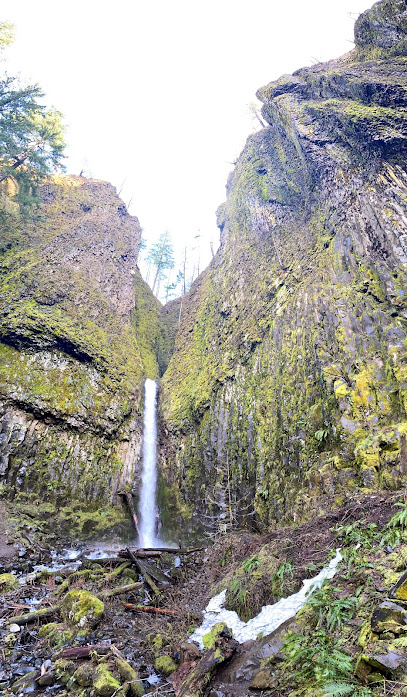
John B. Yeon State Scenic Corridor
Experience the breathtaking views and tranquil trails of John B. Yeon State Scenic Corridor, a scenic gem in Oregon's Columbia River Gorge.
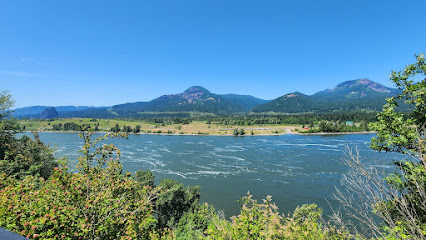
Pilot Butte
Discover the majestic views of Central Oregon from Pilot Butte, a volcanic peak offering a perfect blend of adventure and natural beauty.
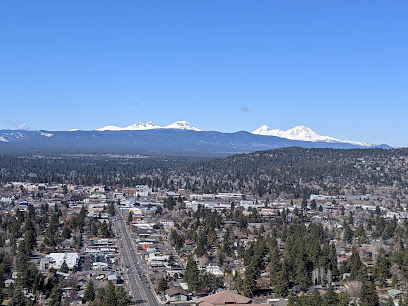
Unmissable attractions to see
Crater Lake National Park
Explore the stunning Crater Lake National Park in Oregon, where deep blue waters and breathtaking landscapes await every nature lover and adventurer.

Vista House at Crown Point
Explore the breathtaking vistas and rich history at Vista House, a premier landmark overlooking the stunning Columbia River Gorge.
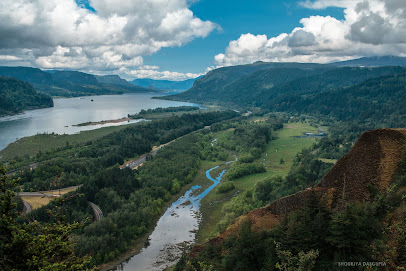
Beacon Rock State Park
Explore the stunning landscapes and outdoor adventures at Beacon Rock State Park, a must-visit destination in the Columbia River Gorge.
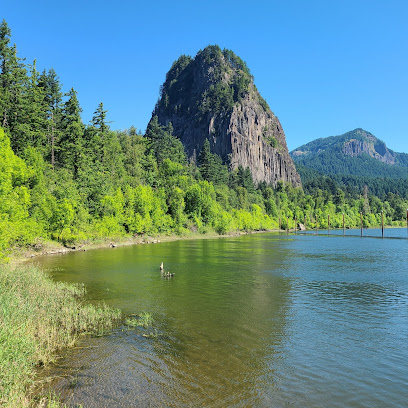
Bridal Veil Falls
Explore Bridal Veil Falls: A breathtaking natural wonder in Oregon featuring scenic trails and stunning views, perfect for nature lovers and photography enthusiasts.
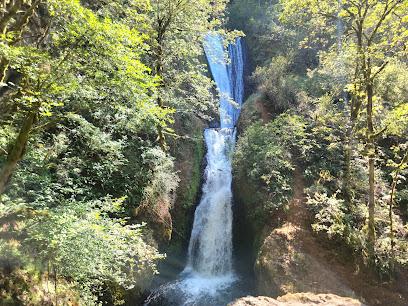
Cascade Locks Marine Park
Experience the breathtaking beauty of Cascade Locks Marine Park, where nature meets history in the stunning Columbia River Gorge.
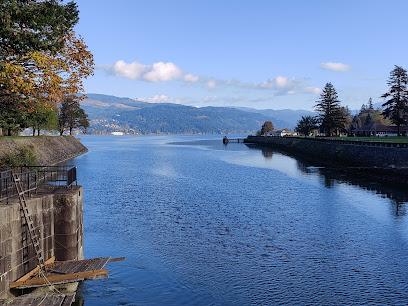
Bridge of the Gods
Discover the stunning views and rich history of the Bridge of the Gods, a must-visit landmark in Cascade Locks, Oregon, connecting two states and offering breathtaking scenery.
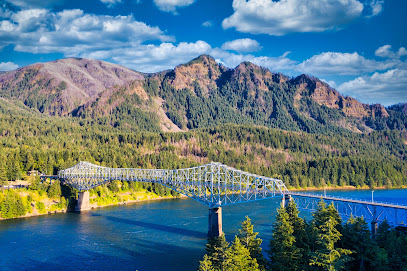
Bridal Veil Falls
Explore the enchanting Bridal Veil Falls, a natural wonder in Oregon's Columbia River Gorge with stunning views and outdoor adventures.
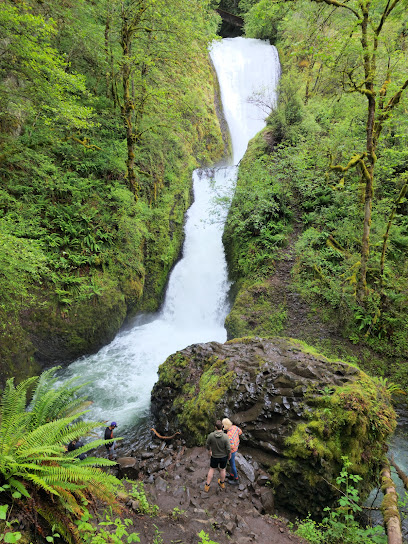
Mount Hood Railroad
Discover the scenic beauty of Oregon aboard the historic Mount Hood Railroad, where every journey is a picturesque adventure through nature's wonders.
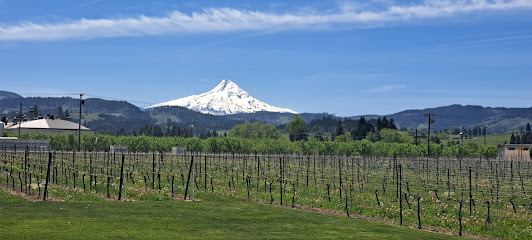
Lava Lands Visitor Center
Explore the geological wonders of Oregon at Lava Lands Visitor Center - your gateway to hiking, education, and breathtaking landscapes.
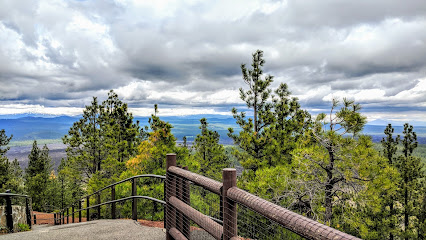
Wahkeena Falls
Experience the breathtaking beauty of Wahkeena Falls, a hidden gem in the Columbia River Gorge, perfect for hiking and nature lovers.
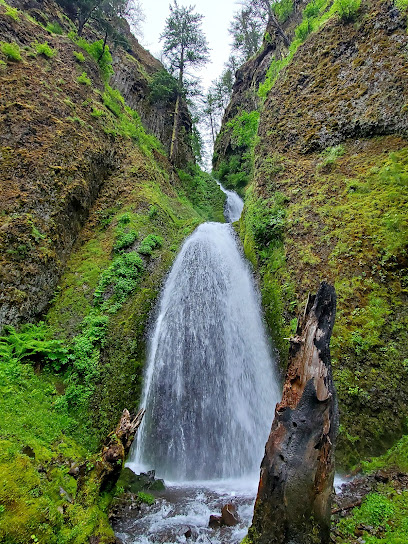
Benson State Recreation Area
Discover the breathtaking landscapes and outdoor adventures at Benson State Recreation Area, a hidden treasure in Oregon's Columbia River Gorge.
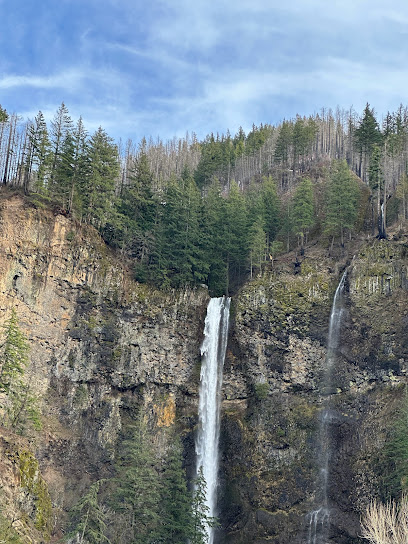
Rowena Crest Viewpoint
Discover the breathtaking beauty of Rowena Crest Viewpoint, a scenic spot along the Historic Columbia River Highway, perfect for hiking and photography.
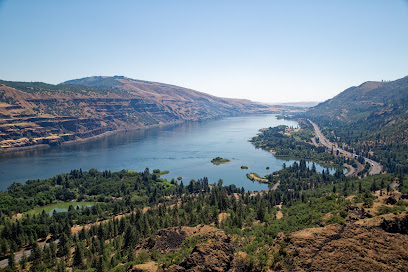
Jonsrud Viewpoint
Discover Jonsrud Viewpoint: A Scenic Gem in Oregon Offering Stunning Views of Mount Hood and the Sandy River, Perfect for Nature Lovers.
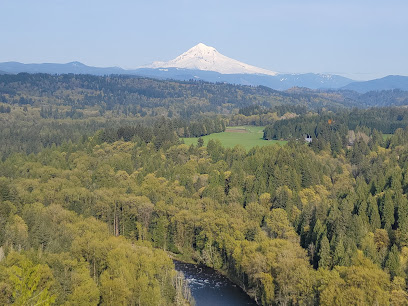
Cape Horn lookout
Experience the stunning beauty of Cape Horn Lookout, a scenic gem offering panoramic views of the Columbia River Gorge and surrounding nature.
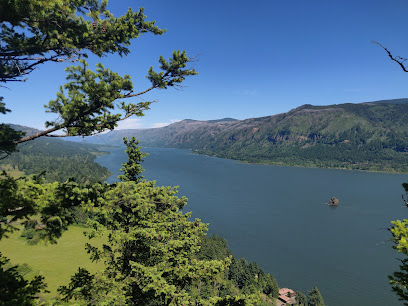
Cascade-Siskiyou National Monument
Explore the diverse ecosystems and breathtaking views at Cascade-Siskiyou National Monument, a must-visit nature preserve in Southern Oregon.
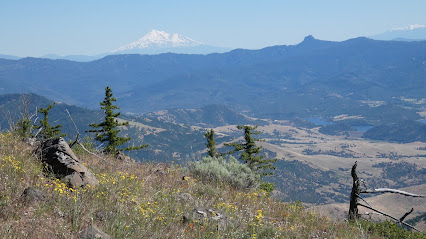
Essential places to dine
Eastwind Drive-In
Discover delicious American fast food and irresistible ice cream at Eastwind Drive-In in Cascade Locks, Oregon – a must-visit culinary gem!
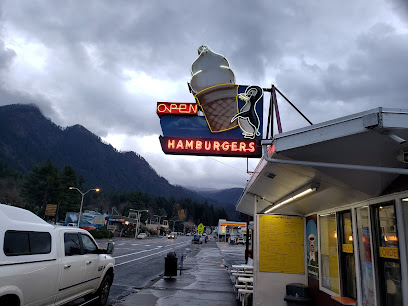
Multnomah Falls Lodge
Experience nature's beauty at Multnomah Falls Lodge - where stunning waterfalls meet rustic charm in Oregon's Pacific Northwest.
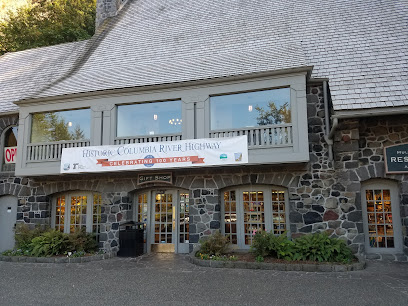
Nicholas Restaurant - Lebanese & Mediterranean Cuisine
Savor authentic Lebanese & Mediterranean cuisine at Nicholas Restaurant in Gresham - where every bite tells a story.

Solstice Wood Fire Pizza - Cafe & Bar
Discover the delightful tastes of wood-fired pizza at Solstice Wood Fire Pizza - Cafe & Bar in scenic Hood River, Oregon.
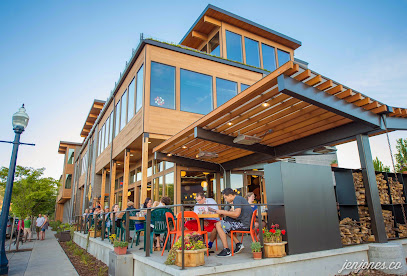
Bridgeside
Discover Bridgeside: A delightful American dining experience in Cascade Locks offering breakfast, lunch, and event hosting with stunning views.
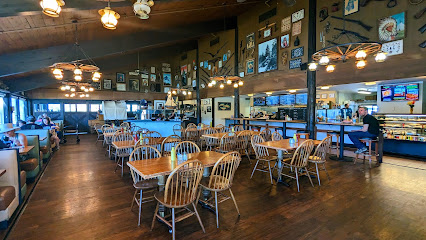
Sugarpine Drive-In
Discover delightful American cuisine and irresistible ice cream at Sugarpine Drive-In, Troutdale's sweetest destination along the Columbia River Highway.
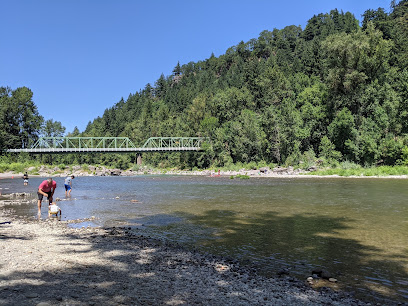
Big River Grill
Experience delicious American cuisine at Big River Grill in Stevenson, WA – where local flavors meet hearty comfort food.
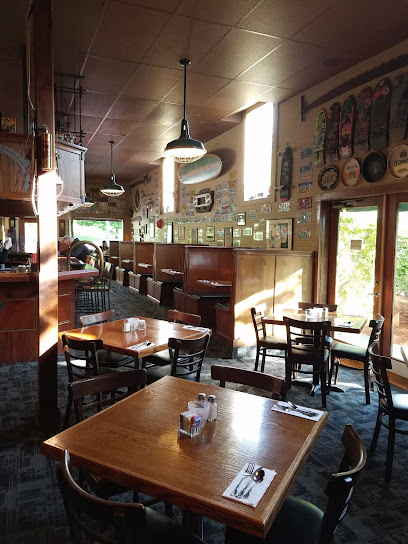
Bette's Place
Discover delightful American breakfasts at Bette's Place in Hood River - where every meal is crafted with love and local ingredients.
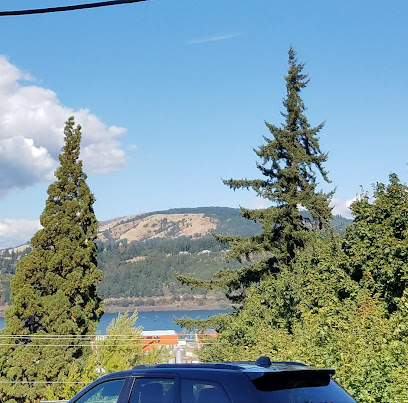
ZigZag Inn
Experience hearty pizza delights at ZigZag Inn in Welches, Oregon - perfect for families seeking delicious meals in a cozy setting.
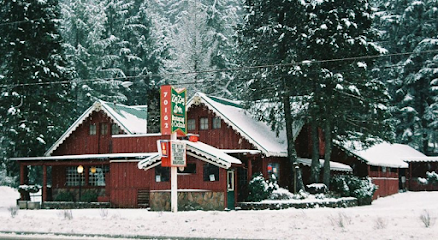
Riverside
Discover Riverside in Hood River: where exceptional dining meets breathtaking river views for an unforgettable culinary adventure.
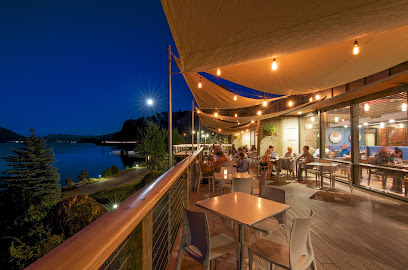
Cowboy Dinner Tree
Experience authentic American cuisine in a rustic setting at Cowboy Dinner Tree in Silver Lake, Oregon—where every meal is a celebration.
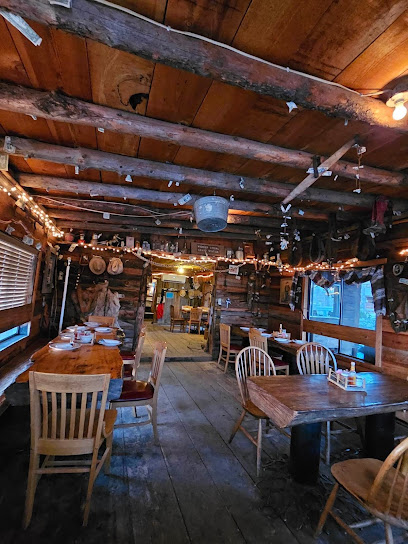
Thunder Island Brewing Co
Discover craft beer excellence at Thunder Island Brewing Co in Cascade Locks - where scenic views meet exceptional brews.
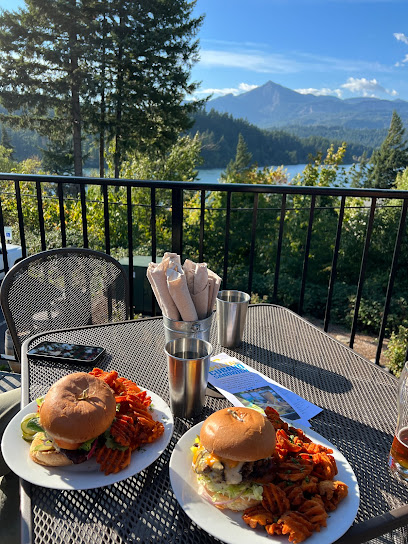
Broder Øst
Experience delightful breakfast and brunch at Broder Øst in Hood River—where Scandinavian flavors meet local ingredients.
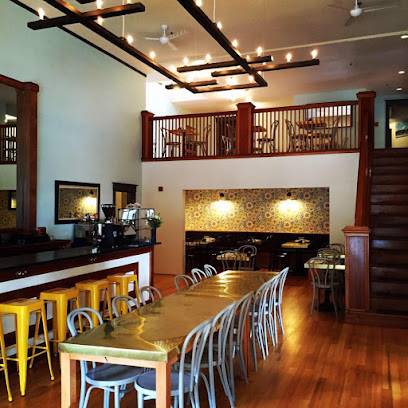
Tumalo Feed Co. Steakhouse
Discover delicious steaks and fresh seafood at Tumalo Feed Co., your go-to steakhouse in scenic Oregon.
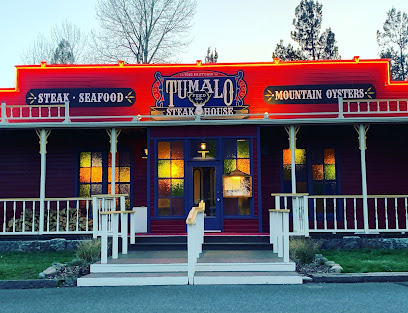
The Gorge White House
Experience Oregon's finest wines at The Gorge White House—a charming farm and wine bar nestled in breathtaking Hood River scenery.
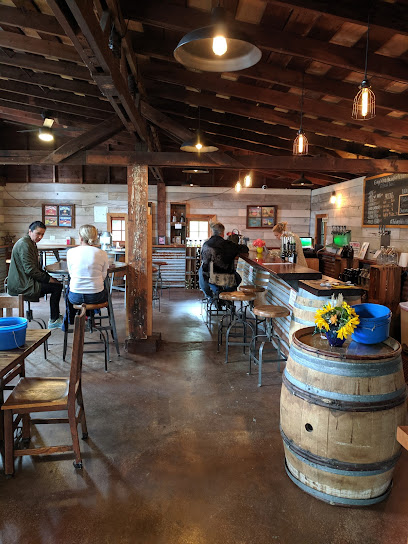
Markets, malls and hidden boutiques
Columbia Gorge Outlets
Discover unbeatable deals on top brands at Columbia Gorge Outlets, where shopping meets the stunning beauty of Oregon's Columbia River Gorge.
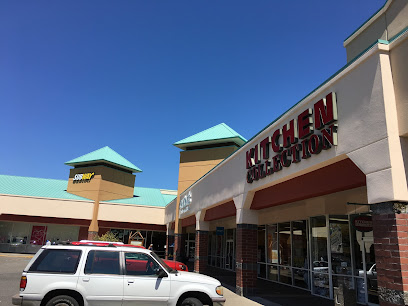
Gresham Station
Discover Gresham Station, Oregon's vibrant shopping mall filled with diverse retail stores, delicious dining, and exciting entertainment for all ages.
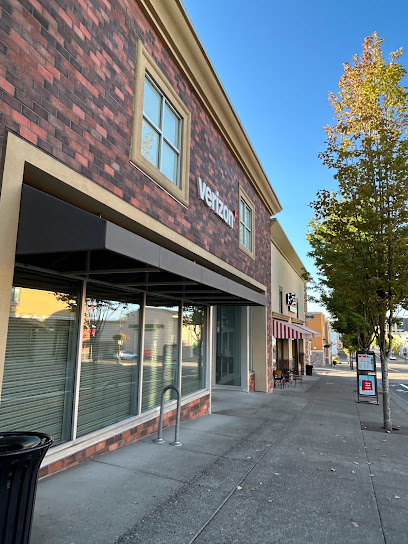
Eastwind Drive-In
Experience the perfect blend of classic American fast food and irresistible ice cream at Eastwind Drive-In in scenic Cascade Locks.
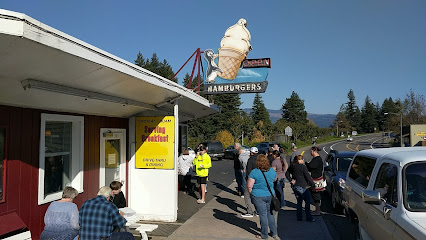
Bridge of the Gods
Discover the breathtaking Bridge of the Gods, a historic landmark offering stunning views and rich cultural heritage in the heart of the Columbia River Gorge.
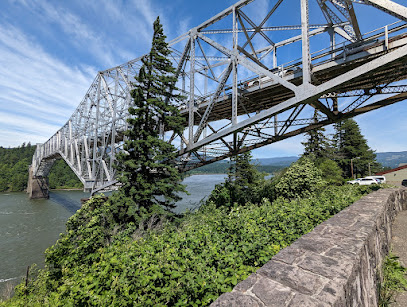
Cascade Village Shopping Center
Explore Cascade Village Shopping Center in Bend, Oregon – a vibrant destination for shopping, dining, and entertainment for all ages.
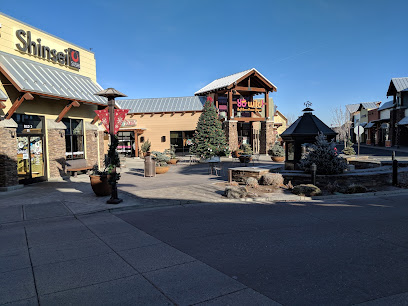
Bridgeside
Experience the best of American cuisine at Bridgeside in Cascade Locks, where local flavors meet breathtaking scenic views.
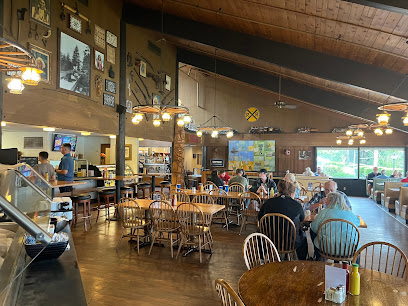
The Gorge White House
Experience the best of Hood River Valley at The Gorge White House, where artisanal flavors meet stunning views and unique gifts.
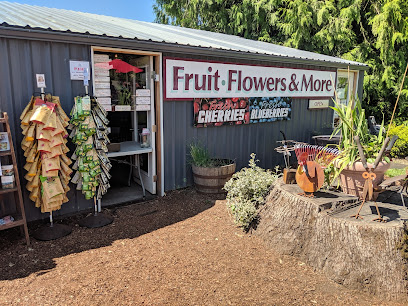
Cascade Square
Discover Cascade Square in The Dalles, Oregon – a vibrant shopping mall offering diverse retail, dining, and entertainment experiences for all ages.
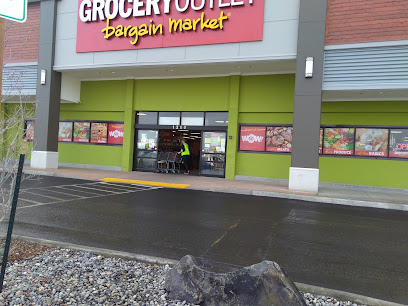
Safeway
Explore the bounty of local and organic foods at Hood River's Safeway, your go-to grocery store for quality products and delightful treats.

Packer Orchards & Bakery
Discover the delightful flavors of Hood River at Packer Orchards & Bakery, where fresh fruits, delicious baked goods, and stunning views await.
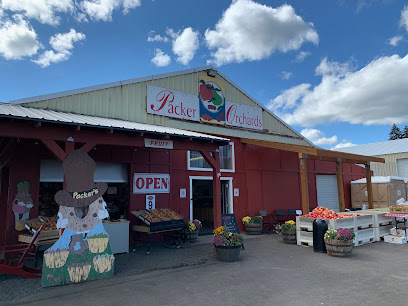
Apple Valley Country Store
Savor the best of Hood River at Apple Valley Country Store, where fresh-baked goods and homemade ice cream await in a charming setting.
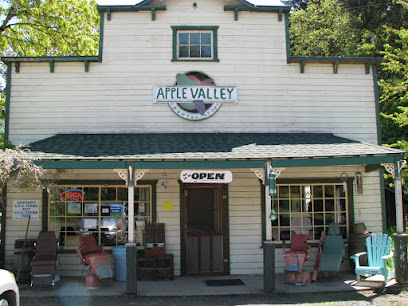
Farm Stand in the Gorge
Discover farm-fresh organic produce and delicious local meals at Farm Stand in the Gorge, your culinary stop in Hood River, Oregon.

Mt Hood Cannabis Company
Discover premium cannabis products in a welcoming atmosphere at Mt Hood Cannabis Company, your go-to store in the scenic Mount Hood area.
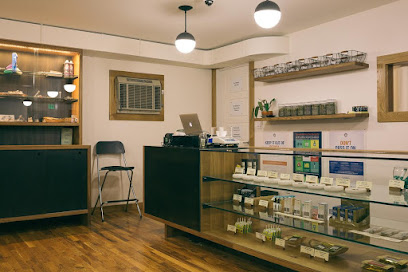
Columbia Market
Discover local flavors and fresh produce in the heart of Cascade Locks at Columbia Market, your go-to grocery store for all your needs.

Stitchin' Post
Discover the heart of crafting at Stitchin' Post, your ultimate destination for fabric, quilting, and sewing supplies in Sisters, Oregon.
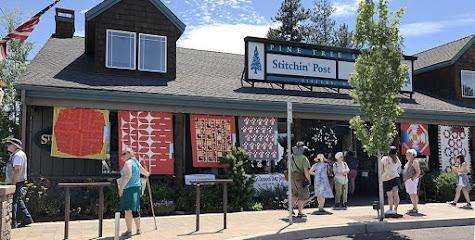
Essential bars & hidden hideouts
Eastwind Drive-In
Experience the taste of classic Americana at Eastwind Drive-In, the go-to spot for burgers and ice cream in Cascade Locks, Oregon.
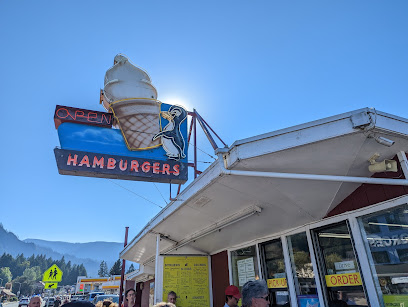
Multnomah Falls Lodge
Experience the enchanting Multnomah Falls Lodge, where rustic charm meets breathtaking waterfall views in Oregon's stunning Pacific Northwest.
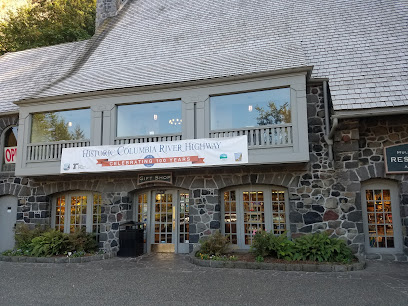
Bridgeside
Experience the flavors of America at Bridgeside in Cascade Locks, where delicious dining meets breathtaking views of the Columbia River Gorge.
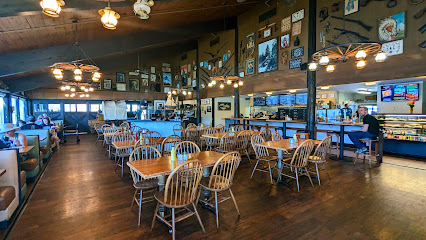
Big River Grill
Discover the flavors of America at Big River Grill in Stevenson, WA - a cozy bar and grill with a menu that delights every palate.
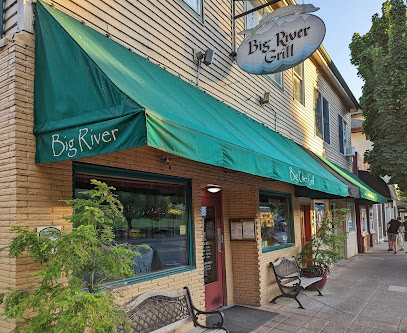
Ferment Brewing Company
Discover the finest craft beers and delicious food at Ferment Brewing Company, a picturesque brewpub in Hood River, Oregon.
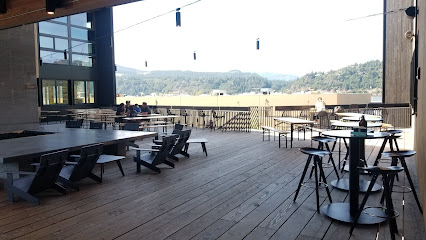
pFriem Family Brewers
Experience the best of craft brewing at pFriem Family Brewers in Hood River, Oregon, where flavor meets local charm.
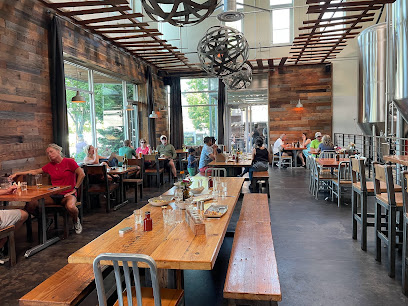
Cascade Lakes Pub at 7th St
Experience the best of American dining and craft brews at Cascade Lakes Pub, a lively brewpub in Redmond, Oregon, perfect for families and sports fans.
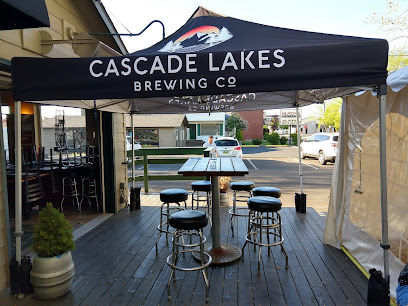
Thunder Island Brewing Co
Experience the best of Oregon's craft beer at Thunder Island Brewing Co, where stunning views and delicious brews come together.
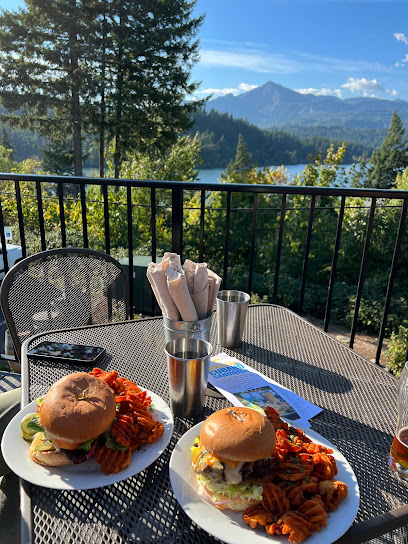
The Gorge White House
Experience the charm of The Gorge White House, a delightful wine bar and cafe in Hood River, offering stunning views and local flavors.
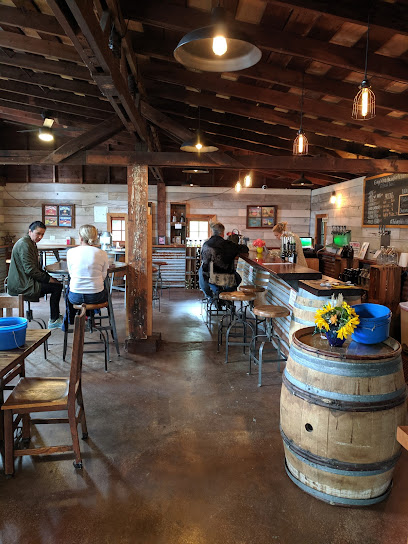
Full Sail Brewing Company
Discover the essence of Oregon's craft beer scene at Full Sail Brewing Company, where award-winning brews meet delicious cuisine in a stunning riverside setting.
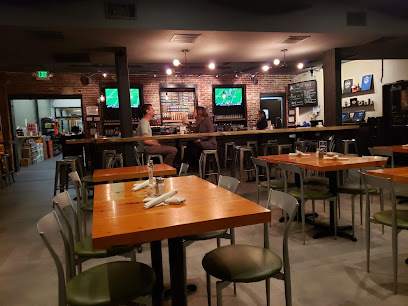
Backwoods Brewing Company
Experience the best of local craft brews and delicious American cuisine at Backwoods Brewing Company in scenic Carson, WA.
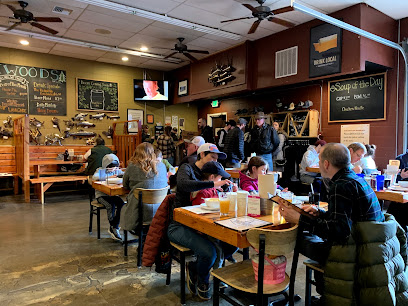
Brigham Fish Market
Discover the best of Oregon's seafood at Brigham Fish Market, where freshness meets sustainability in a cozy Cascade Locks setting.
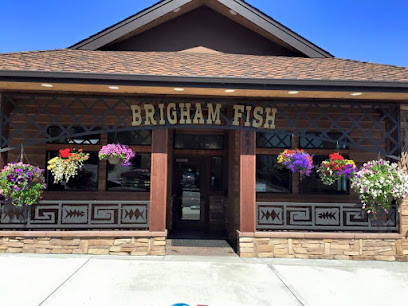
Lakefront Bar & Grill
Enjoy delectable grilled dishes and breathtaking lake views at Lakefront Bar & Grill, a must-visit dining spot in Cascade, Idaho.
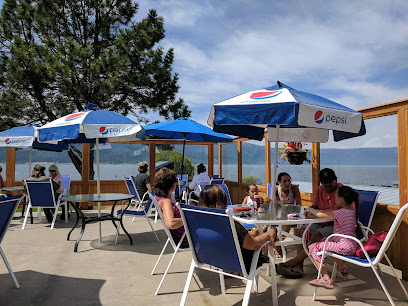
Riverview Restaurant
Experience the best of Pacific Northwestern and Asian fusion cuisine at Riverview Restaurant in Troutdale, Oregon, with stunning riverside views.
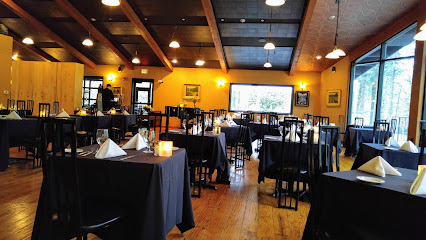
Everybody's Brewing
Discover Everybody's Brewing in White Salmon, WA: where craft beer meets gourmet cuisine in a lively, community-focused atmosphere.
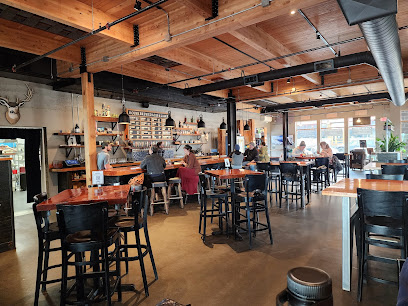
Local Phrases about Cascade Mountains
-
- HelloHowdy
[haw-dee] - GoodbyeSee ya later
[see ya lay-ter] - YesYep
[yep] - NoNah
[nah] - Please/You're welcomePlease and thank you
[pleez and thank yoo] - Thank youThanks a bunch
[thanks uh bunch] - Excuse me/SorryPardon me
[par-dun me] - How are you?Howdy partner?
[haw-dee par-tner] - Fine. And you?Jus' fine. You?
[jus fine. yoo?] - Do you speak English?Ya speak English?
[ya speak in-glish?] - I don't understandI ain't catchin' on
[I aint ketch-in on]
- HelloHowdy
-
- I'd like to see the menu, pleaseCan I take a gander at the menu?
[can I take uh gan-der at the menu?] - I don't eat meatI ain't no meat eater
[I aint no meat ee-ter] - Cheers!Cheers!
[cheers!] - I would like to pay, pleaseI reckon I'll settle up
[I reck-in I'll set-tle up]
- I'd like to see the menu, pleaseCan I take a gander at the menu?
-
- Help!Help!
[help!] - Go away!Git!
[git!] - Call the Police!Call the Sheriff!
[call the sher-iff] - Call a doctor!Fetch the doc!
[fetch the doc!] - I'm lostI'm turned around
[I'm turned uh-round] - I'm illI'm feelin' poorly
[I'm feel-in poor-ly]
- Help!Help!
-
- I'd like to buy...I'm fixin' to purchase...
[I'm fix-in to pur-chase] - I'm just lookingI'm jus' browsin'
[I'm jus brows-in] - How much is it?How much fer that?
[how much fur that?] - That's too expensiveThat's a mite pricey
[that's uh myte pry-see] - Can you lower the price?Kin ya knock the price down some?
[kin ya knock the price down sum?]
- I'd like to buy...I'm fixin' to purchase...
-
- What time is it?What's the hour?
[whats the hour?] - It's one o'clockIt's one
[it's one] - Half past (10)Half past ten
[half past ten] - MorningMornin'
[mornin'] - AfternoonAfternoon
[after-noon] - EveningEvenin'
[even-in'] - YesterdayYest'day
[yest-day] - TodayToday
[today] - TomorrowTomorrah
[tom-uh-rah] - 1One
[wun] - 2Two
[too] - 3Three
[three] - 4Four
[four] - 5Five
[five] - 6Six
[six] - 7Seven
[seven] - 8Eight
[eight] - 9Nine
[nine] - 10Ten
[ten]
- What time is it?What's the hour?
-
- Where's a/the...?Where's the...
[wheres the...] - What's the address?What's the location?
[whats the loh-kay-shun] - Can you show me (on the map)?Can you point me in the right direction?
[can you point me in the rite di-rek-shun] - When's the next (bus)?When's the next coach comin' round?
[whens the next coach com-in round] - A ticket (to ....)A pass (to ...)
[uh pass (to ...)]
- Where's a/the...?Where's the...
History of Cascade Mountains
-
The Cascade Mountains, a major mountain range of western North America, formed millions of years ago through volcanic activity. The subduction of the Juan de Fuca Plate beneath the North American Plate resulted in extensive volcanic eruptions, creating the rugged terrain and volcanic peaks we see today. This geological activity continues, as evidenced by the presence of active volcanoes such as Mount Hood and Mount St. Helens.
-
The Cascade Mountains have been home to various Indigenous tribes for thousands of years. Tribes such as the Klamath, Modoc, and Molalla utilized the rich resources of the region for hunting, fishing, and gathering. The mountains held deep spiritual significance and were often featured in their oral traditions and mythology.
-
In the early 19th century, European explorers like Lewis and Clark ventured into the Cascade Mountains during their westward expedition. Their reports of the region's natural beauty and abundant resources attracted settlers and fur traders, leading to increased exploration and mapping of the area.
-
The Cascade Mountains played a pivotal role in the westward migration of American settlers during the 19th century. The Oregon Trail, a historic east-to-west wagon route, traversed the Cascades, presenting settlers with significant challenges such as steep inclines, dense forests, and treacherous rivers. Despite these obstacles, the trail facilitated the movement of thousands of settlers to the Oregon Territory.
-
Crater Lake, located in the southern part of the Cascades, is renowned for its deep blue color and clarity. Formed by the collapse of Mount Mazama around 7,700 years ago, the lake became a national park in 1902. Crater Lake National Park preserves the unique geological features and natural beauty of the area, attracting visitors from around the world.
-
During the late 19th and early 20th centuries, the Cascade Mountains became a hub for the timber industry. Logging operations proliferated, leading to significant deforestation. In response, conservation efforts emerged to protect the region's natural resources. The establishment of national forests and protected areas aimed to balance resource extraction with environmental preservation.
-
Today, the Cascade Mountains are a popular destination for outdoor enthusiasts. The region offers a wide range of recreational activities, including hiking, skiing, mountain biking, and fishing. Iconic destinations such as Mount Hood, the Three Sisters Wilderness, and the Pacific Crest Trail attract adventurers seeking to explore the natural beauty and diverse landscapes of the Cascades.
Cascade Mountains Essentials
-
The Cascade Mountains in Oregon are accessible by several major highways, including Interstate 5 and U.S. Route 97. The nearest major airport is Portland International Airport (PDX), approximately 70 miles away from the northern part of the range. From the airport, you can rent a car or use shuttle services to reach various parts of the Cascade Mountains. Additionally, Eugene Airport (EUG) and Redmond Municipal Airport (RDM) offer closer access to the southern and central parts of the range, respectively.
-
Having a car is the most convenient way to explore the Cascade Mountains, as public transportation options are limited. Rental cars are available at major airports and in nearby cities such as Portland and Eugene. For those who prefer not to drive, guided tours and shuttle services are available to popular destinations like Crater Lake and Mount Hood. During winter, some areas may require vehicles equipped with chains or snow tires.
-
The currency used in the United States is the U.S. Dollar (USD). Credit cards are widely accepted in most hotels, restaurants, and shops in and around the Cascade Mountains. However, it's advisable to carry some cash, particularly if you plan to visit more remote areas where card acceptance may be limited. ATMs are available in nearby towns and cities, but it’s wise to withdraw cash before heading into the mountains.
-
The Cascade Mountains are generally safe for tourists, but it's important to take standard precautions. Avoid leaving valuables in your car when parking at trailheads, as break-ins can occur. Stick to well-marked trails and inform someone of your hiking plans, especially if you are venturing into more remote areas. While there are no specific high-crime areas targeting tourists, always stay vigilant and aware of your surroundings.
-
In case of an emergency, dial 911 for immediate assistance. Emergency services, including police and medical facilities, are available in nearby towns such as Bend, Eugene, and Portland. It's recommended to have travel insurance that covers medical emergencies and outdoor activities. For minor health issues, you'll find pharmacies in these towns. Always carry a first-aid kit and know the location of the nearest hospital or urgent care center.
-
Fashion: Do wear layers and bring appropriate gear for changing weather conditions. Don't wear flip-flops or sandals on hiking trails; sturdy shoes are essential. Religion: Do respect any spiritual sites you may encounter, including Native American sacred grounds. Public Transport: Do plan your trips ahead of time, as public transport is limited. Don't rely on public transport for remote destinations. Greetings: Do greet people with a friendly smile or a simple 'hello.' Don't be overly formal; the atmosphere is generally casual. Eating & Drinking: Do try local specialties such as Oregon wines and fresh produce. Don't litter; always pack out what you pack in.
-
To experience the Cascade Mountains like a local, visit the small towns and communities that dot the range. Engage with locals at farmers' markets and community events. For a unique experience, consider camping at one of the many campgrounds or staying in a charming bed and breakfast. Don't miss visiting natural hot springs, hiking lesser-known trails, and exploring volcanic landscapes. Always check local advisories for trail conditions and weather updates.
Trending Landmarks in Cascade Mountains
-
Crater Lake National Park
-
Columbia River Gorge National Scenic Area
-
Smith Rock State Park
-
Beacon Rock State Park
-
Cascade Locks Marine Park
-
Bridge of the Gods
-
Lava Lands Visitor Center
-
Viento State Park
-
Ainsworth State Park
-
Starvation Creek Falls
-
Wahclella Falls Trail
-
Lower Multnomah Falls
-
Dry Creek Falls
-
John B. Yeon State Scenic Corridor
-
Pilot Butte
Nearby Cities to Cascade Mountains
-
Things To Do in The Dalles
-
Things To Do in Yakima
-
Things To Do in Tacoma
-
Things To Do in Auburn
-
Things To Do in Federal Way
-
Things To Do in Kent
-
Things To Do in Renton
-
Things To Do in Bellevue
-
Things To Do in Bend
-
Things To Do in Bremerton
-
Things To Do in Seattle
-
Things To Do in Richland
-
Things To Do in Redmond
-
Things To Do in Kirkland
-
Things To Do in Kennewick













